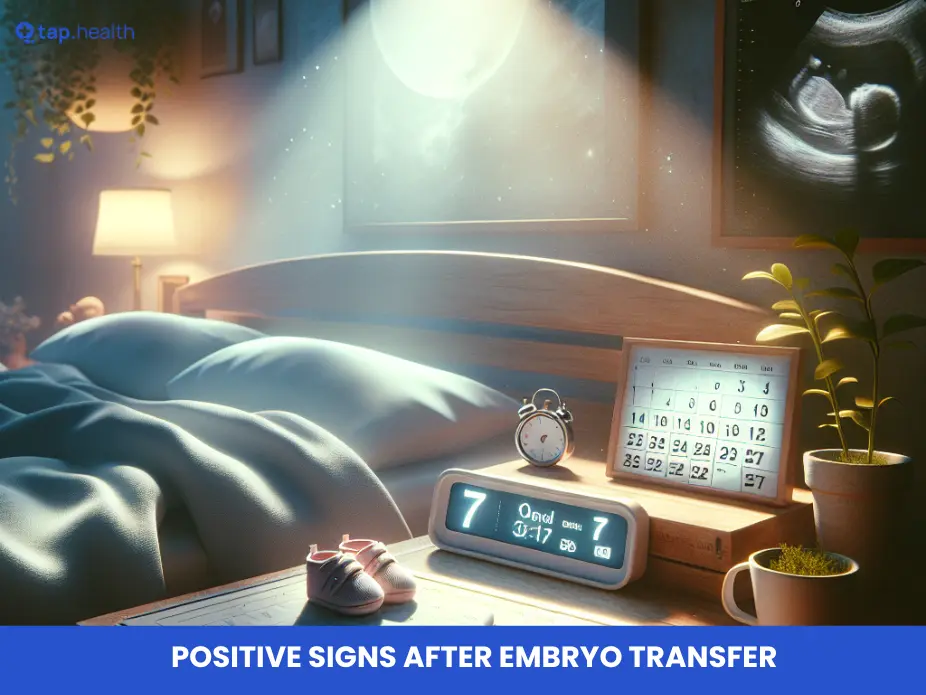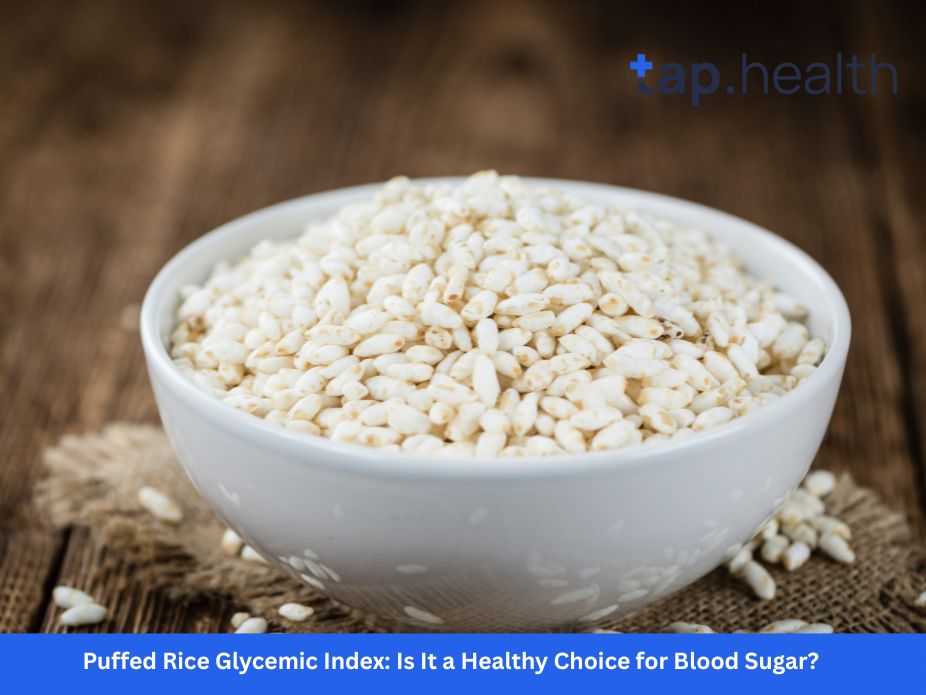The journey through IVF (In Vitro Fertilization) is both emotionally and physically taxing, and the embryo transfer is one of the most critical steps. After the transfer, it’s natural to wonder about the signs of success. This blog will guide you through what to expect after an embryo transfer, including the early signs that may indicate a positive outcome.
What is Embryo Transfer?
Embryo transfer is the final step in the IVF process, where the embryos that have been fertilized in a lab are carefully placed into the woman’s uterus. This procedure is done with the hope that one or more of these embryos will implant into the uterine lining, leading to a successful pregnancy.
The embryo transfer usually happens a few days after fertilization, typically between 3 to 5 days. The procedure itself is relatively quick and painless, often taking just a few minutes. However, the days that follow can be nerve-wracking as you wait to see if the transfer was successful.
Embryo Transfer Process
The embryo transfer process involves several key steps:
- Preparation: Before the transfer, your doctor will ensure that your uterus is ready to receive the embryos. This may involve hormone treatments to thicken the uterine lining.
- Selecting the Embryos: The best-quality embryos are selected for transfer. This selection is based on factors like the number of cells and the embryos’ overall health.
- Transfer Procedure: The embryos are placed into a catheter (a thin, flexible tube), which is then gently inserted into the uterus. The embryos are released into the uterine cavity.
- Post-Transfer Rest: After the transfer, you might be asked to rest for a short period, though most women can resume normal activities shortly afterward.
The success of the transfer depends on various factors, including the quality of the embryos, the condition of the uterus, and the overall health of the woman.
What To Expect Following Your IVF Frozen Embryo Transfer
After your IVF Frozen Embryo Transfer (FET), it’s normal to be on edge, analyzing every little symptom. Here’s what you can typically expect in the days following the transfer:
- Mild Cramping: Some women experience mild cramping similar to menstrual cramps. This could be a sign that the embryo is implanting in the uterine lining.
- Spotting or Light Bleeding: Light spotting, known as implantation bleeding, can occur when the embryo attaches to the uterus. This is usually pink or brown in color and is much lighter than a regular period.
- Bloating: Hormonal changes after the transfer can cause bloating and a feeling of fullness in the abdomen.
- Fatigue: Feeling tired is common due to the increase in progesterone, a hormone that supports pregnancy.
- Breast Tenderness: Your breasts may feel sore or sensitive, another side effect of rising hormone levels.
While these symptoms can be encouraging, it’s important to remember that every woman’s experience is different. Some may have no symptoms at all and still have a successful pregnancy.
Blood Pregnancy Test Two Weeks After Your IVF-FET
Two weeks after your IVF-FET, you’ll have a blood test to check for pregnancy. This test measures the level of human chorionic gonadotropin (hCG), a hormone produced after implantation. A positive hCG result indicates that the embryo has successfully implanted and that you are pregnant.
Here’s what to expect during the two-week wait (often referred to as the “two-week wait” or TWW):
- Anxiety: The TWW can be emotionally challenging as you wait to find out if the transfer was successful. Try to stay calm and distract yourself with activities you enjoy.
- Symptoms: You might notice symptoms similar to those mentioned earlier, but keep in mind that these can also be caused by the hormone medications used during IVF.
- The Test: The blood test is usually done around 10 to 14 days after the transfer. If the hCG level is positive, it means the pregnancy is progressing. Your doctor may repeat the test to confirm that hCG levels are rising appropriately, which is a good sign of a healthy pregnancy.
20 Positive Signs After Embryo Transfer
After an embryo transfer, the waiting period until your pregnancy test can be filled with anxiety and hope. While only a blood test can confirm pregnancy, some early signs may indicate a successful embryo implantation. Here are 20 positive signs to watch for:
1. Implantation Bleeding
One of the earliest signs of a successful embryo transfer is implantation bleeding. This occurs when the embryo attaches itself to the lining of the uterus, typically 6-12 days after ovulation. The bleeding is usually light and may appear as pink or brown discharge rather than a full flow. Unlike a regular period, implantation bleeding is short-lived and much lighter. While not all women experience implantation bleeding, noticing it can be a positive sign that the embryo has implanted successfully.
2. Mild Cramping
Mild cramping is another common sign that the embryo is implanting into the uterine wall. These cramps can feel similar to menstrual cramps, but they are typically less intense and more localized. The cramping usually occurs within a few days after the transfer and may last for a few hours or days. While cramping can be alarming, it’s generally a good sign, indicating that your body is adjusting to the new pregnancy.
3. Breast Tenderness
Sore or swollen breasts are often one of the first signs of pregnancy. After embryo transfer, hormonal changes, particularly the increase in progesterone, can cause the breasts to become tender or sensitive. The sensation is similar to premenstrual symptoms but may be more pronounced. This tenderness is a sign that your body is preparing for pregnancy, with changes in the breast tissue in anticipation of milk production.
4. Fatigue
Feeling unusually tired or exhausted is a common early pregnancy symptom caused by the increase in progesterone levels. After an embryo transfer, your body begins to work harder to support the developing embryo, leading to a noticeable drop in energy levels. Fatigue can start as early as the first week after transfer and may persist throughout the first trimester. Rest and proper nutrition can help manage this symptom.
5. Increased Basal Body Temperature (BBT)
A sustained rise in basal body temperature (BBT) after ovulation can be a sign that the embryo has implanted successfully. BBT is your body’s temperature when at complete rest, and it typically rises slightly after ovulation due to increased progesterone. If the embryo implants, the temperature remains elevated. Monitoring BBT consistently can provide an early indication of pregnancy.
6. Nausea or Morning Sickness
Some women experience nausea or morning sickness as early as a week after embryo transfer. Although it’s called “morning sickness,” it can occur at any time of the day. This nausea is triggered by the rising levels of hCG (human chorionic gonadotropin) in the body, a hormone that supports the pregnancy. While not everyone will experience nausea this early, it can be a positive sign of pregnancy if it does occur.
7. Frequent Urination
Frequent urination is another early sign of pregnancy, often caused by the hormone hCG, which increases after implantation. This hormone stimulates blood flow to the pelvic region, causing the kidneys to produce more urine. Additionally, the expanding uterus can put pressure on the bladder, increasing the need to urinate. If you find yourself visiting the bathroom more often than usual, it could be a sign of pregnancy.
8. Bloating
Bloating is a common symptom after embryo transfer, often caused by the hormonal changes that occur as your body prepares for pregnancy. Progesterone, in particular, can slow down digestion, leading to bloating and gas. This bloating may feel similar to premenstrual bloating but can be more pronounced. Wearing loose clothing and staying hydrated can help alleviate discomfort.
9. Mood Swings
Hormonal fluctuations after an embryo transfer can lead to mood swings, making you feel more emotional or sensitive than usual. These mood swings can range from feelings of happiness and excitement to anxiety and irritability. It’s important to remember that these emotional changes are normal and a common part of early pregnancy as your body adjusts to new hormone levels.
10. Increased Sense of Smell
Some women report a heightened sense of smell early in pregnancy, a condition known as hyperosmia. This increased sensitivity to odors can be one of the earliest signs of pregnancy, often occurring within the first week or two after embryo transfer. You might find that certain smells, even ones you previously enjoyed, become overwhelming or unpleasant. This is due to the rapid rise in estrogen levels.
11. Food Cravings or Aversions
Changes in taste preferences, such as sudden cravings for certain foods or aversions to others, can be an early sign of pregnancy. These changes can occur as soon as a week after embryo transfer and are linked to hormonal fluctuations. You might find yourself craving unusual food combinations or being repelled by foods you usually enjoy. These cravings and aversions are your body’s way of responding to the new hormonal environment.
12. Dizziness or Lightheadedness
Dizziness or lightheadedness can occur in early pregnancy due to lower blood pressure and increased blood flow to support the growing embryo. These symptoms can start soon after embryo transfer as your cardiovascular system adjusts to the demands of pregnancy. If you experience dizziness, it’s important to stay hydrated, eat regularly, and avoid sudden movements to prevent fainting.
13. Mild Headaches
Hormonal changes during early pregnancy can lead to mild headaches. These headaches are often caused by the sudden increase in progesterone and estrogen levels, which can affect blood flow and cause tension. While mild headaches are common, it’s important to manage them with rest, hydration, and avoiding stress. If headaches become severe, it’s advisable to consult your doctor.
14. Backache
Lower back pain is a common symptom in early pregnancy and can be an indicator of successful embryo implantation. This backache is often due to the changes in hormone levels and the body’s preparation for supporting the growing uterus. The pain is usually mild and may be similar to the discomfort experienced during menstruation. Gentle stretching and proper posture can help alleviate this symptom.
15. Constipation
Constipation is another early sign of pregnancy, often caused by increased levels of progesterone, which relaxes the muscles of the digestive tract and slows down digestion. This can lead to fewer bowel movements and harder stools. Staying hydrated, eating a high-fiber diet, and regular exercise can help manage constipation during early pregnancy.
16. Metallic Taste
A metallic taste in the mouth, also known as dysgeusia, can be an early pregnancy symptom caused by hormonal changes. This unusual taste sensation can make food and drinks taste different, sometimes leading to food aversions. Dysgeusia is usually temporary and may fade as the pregnancy progresses, but it can be a noticeable sign in the early weeks after embryo transfer.
17. Increased Cervical Mucus
A noticeable increase in cervical mucus can be an early sign of pregnancy. After embryo transfer, the body produces more mucus to protect the growing embryo and help prevent infections. The mucus may become thicker, creamier, or more abundant. Monitoring cervical mucus changes can provide an early indication of pregnancy before a positive test result.
18. Shortness of Breath
As your body starts producing more blood to support the growing embryo, you might experience shortness of breath, even during light activities. This symptom can begin in the early weeks of pregnancy and is due to increased oxygen demand and the body’s effort to adjust to the new physiological conditions. If shortness of breath becomes severe or persistent, it’s important to consult your doctor.
19. Darkening of Areolas
The areolas (the area around the nipples) may darken as a result of hormonal changes during early pregnancy. This change is one of the earliest physical signs of pregnancy and occurs as the body prepares for breastfeeding. The darkening of areolas, along with increased breast sensitivity, can be noticed soon after embryo transfer and is a positive sign of pregnancy.
20. Positive At-Home Pregnancy Test
An early positive result on a home pregnancy test can be a sign of pregnancy, especially if taken about 10-14 days after embryo transfer. Home pregnancy tests detect the presence of the hormone hCG, which is produced after implantation. However, it’s important to confirm the result with a blood test at your clinic, as home tests can sometimes give false positives or negatives.
Emotional and Hormonal Changes
After an embryo transfer, you might experience significant emotional and hormonal changes. The waiting period, coupled with the high stakes of the process, can make emotions run high. Understanding these changes can help you manage your feelings more effectively.
- Mood Swings: Fluctuating hormones can cause sudden mood changes. You might feel joyful one moment and anxious or tearful the next.
- Stress and Anxiety: The uncertainty during the two-week wait can be stressful. It’s common to feel worried about the outcome, and this can sometimes lead to feelings of frustration or sadness.
- Hope and Excitement: On the flip side, you may also feel hopeful and excited, especially if you notice signs that the transfer was successful.
Understanding Hormonal Impact on Emotions
The hormonal impact on emotions is significant during and after the embryo transfer process. Hormones like progesterone, which is often given to support the uterine lining, can cause a range of emotional responses:
- Progesterone: This hormone is crucial for maintaining pregnancy but can also cause mood swings, tiredness, and bloating.
- Estrogen: Often used in IVF treatments, estrogen can contribute to emotional sensitivity and mood changes.
- hCG (Human Chorionic Gonadotropin): As hCG levels rise in early pregnancy, it can lead to symptoms like nausea and heightened emotions.
It’s important to acknowledge these emotions and find healthy ways to cope, such as talking to a partner or friend, practicing relaxation techniques, or seeking support from a counselor if needed.
Monitoring Your Health
The time after your embryo transfer is important. You should listen to your body and take care of yourself. While you wait for the results, try to live a healthy life. Eat balanced meals, drink enough water, and do light exercises that your doctor recommends.
This time is not just about waiting for a pregnancy test. It is also about helping your body and mind as they go through big changes.
Importance of Hydration and Nutrition
Staying well-hydrated is very important during your IVF treatment. This is especially true after the embryo transfer. Drinking enough water helps with blood flow and delivers nutrients to your uterus. It also supports your overall body functions.
Eating a balanced diet is key. Make sure to include fruits, vegetables, lean proteins, and whole grains. These foods give your body the nutrients it needs. It’s good to focus on foods that are good for your gut. A healthy digestive system is important for keeping your hormones balanced.
Nourishing your body is a way to care for yourself during this time. This is important no matter what the pregnancy test results are.
Activities and Exercises to Avoid
While light exercise is usually good during fertility treatments, your fertility clinic will probably tell you to avoid hard workouts and heavy lifting after embryo transfer.
Here is a list of activities you should avoid after embryo transfer:
- Intense workouts: Stay away from HIIT classes, running, and anything that makes you too breathless.
- Heavy lifting: Don’t lift anything over 15 pounds for the first few weeks.
- Hot tubs and saunas: The heat can harm a developing embryo.
The aim is to reduce stress on your body and create the best conditions for a successful embryo transfer.
When to Consult Your Doctor
Some discomfort is normal after the transfer. However, it’s important to pay attention to any strange or worrying symptoms. In these cases, you should contact your doctor. Always keep in touch with your medical team during this time.
If you have any questions or notice anything unusual, don’t hesitate to reach out, even if it seems small.
Symptoms That Warrant Medical Attention
Pay close attention to any significant changes in your body during the two-week wait. Some symptoms require immediate medical attention:
- Severe pain or cramping: While mild discomfort is common, severe pain could indicate a complication.
- Heavy bleeding: Light spotting is common, but heavy bleeding that soaks through pads quickly is concerning.
- Fever: A fever could be a sign of infection and should be reported immediately.
| Symptom | Description |
| Painful Urination | Burning sensation during urination |
| High Fever | Temperature over 100.4°F (38°C) |
| Severe Pain | Especially in the abdomen or pelvic region |
| Heavy Bleeding | Soaking through more than one pad per hour |
| Foul-Smelling Discharge | Could indicate an infection |
These symptoms could indicate a problem that needs immediate medical intervention.
Routine Check-ups and Follow-up
Throughout your IVF cycle, your fertility clinic will set up regular check-ups and ultrasounds to watch your progress. These appointments help check the health of your uterine lining, hormone levels, and your overall health.
During these follow-up visits, feel free to ask any questions or share any concerns. This includes your treatments, medications, possible symptoms, and anything else that worries you.
Keep in mind that your medical team is there to help you. They are your best support during this journey. Don’t hesitate to rely on their knowledge and care.
Frequently Asked Questions on Positive Signs After Embryo Transfer
1.How soon can I take a pregnancy test after the embryo transfer?
It’s important to wait for the most accurate results. Most IVF specialists say to take a pregnancy test that checks hCG hormone levels in your blood about 10-14 days after the embryo transfer. This gives enough time for successful implantation to take place.
2Is it normal to feel no symptoms post-embryo transfer?
Feeling no symptoms at all after an embryo transfer is quite common. It doesn’t mean the transfer failed. Fertility medications can create symptoms like those of pregnancy. So, it’s okay if you don’t have any symptoms to share.
3.Can mild cramping be a positive sign after the transfer?
Mild cramping is a common sign of early pregnancy. It might mean the embryo is attaching to the uterine lining. But, this cramping can also be a side effect of progesterone. So, it is not a definite positive sign.
4.What lifestyle changes are recommended post-embryo transfer?
In general, you should keep a healthy lifestyle during your IVF treatment. After the embryo transfer, focus on resting. Eat foods that are rich in nutrients. Drink plenty of water. Make sure to follow your doctor’s advice about medicines and activities.
5.How do I differentiate between normal and alarming post-transfer symptoms?
Some discomfort is normal, but you should see a doctor if you have serious symptoms. These include heavy bleeding, severe pain, signs of Ovarian Hyperstimulation Syndrome (OHSS), or symptoms of infection. Always reach out to your doctor if you are worried.
References
- National Institute of Child Health and Human Development. Early Pregnancy – Information on early pregnancy signs and what to expect in the first few weeks.
- Mayo Clinic. Fatigue during pregnancy: Why it happens and how to feel better – Detailed information on why fatigue occurs during pregnancy and how to manage it.



